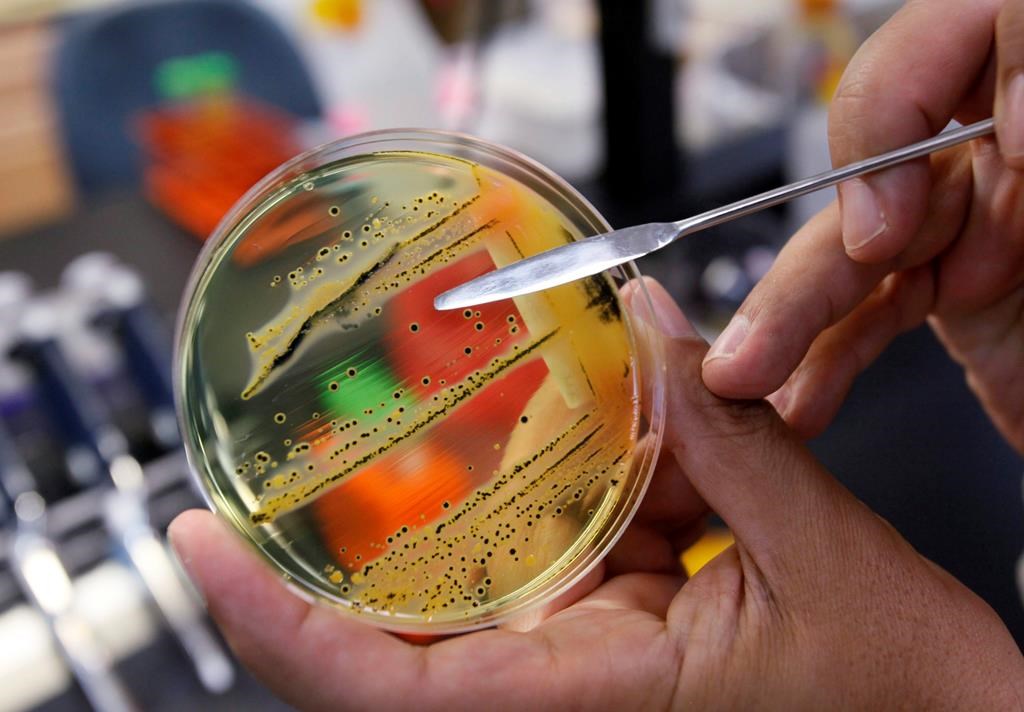Thursday afternoon Public Health Agency of Canada declared an outbreak of salmonella in two Atlantic provinces.

The federal agency says 57 cases of Salmonella Enteritidis illness were confirmed, of which 25 are in Newfoundland and Labrador, and 32 in Nova Scotia.
According to the release, these individuals became sick between late October 2020 and January 2021. Nineteen of them have been hospitalized, but no deaths have been reported to date.
The agency says 68 per cent of those infected were female, and cases were detected in individuals aged between two and 98.
In October, a recall was issued for eggs from Hilly Acres Farm in Nova Scotia due to possible salmonella contamination.

Get weekly health news
The Canadian Food Inspection Agency says the products were distributed across Newfoundland and Labrador and Nova Scotia.
“This recall was triggered by the company test results,” the CFIA stated in a food recall warning.
The items recalled included Farmer John Eyking, Eyking Delite, Compliments and Nova Eggs. Hilly Acres Farm in Cape Breton began a voluntary recall of eggs due to a possible salmonella concern, and that’s when the Canadian Food Inspection Agency got notified.
“The recalled eggs are now past their shelf-life and are no longer available for purchase,” said Health Canada in a news release.
“Some individuals who became sick in this outbreak reported exposure to recalled eggs; however, there are a number of recent ill individuals that do not.”
The Canadian Food Inspection Agency is continuing a food safety investigation and will update its food recall warnings if other high-risk products are recalled.

Salmonella poisoning can result in a wide range of symptoms, from short-term fever, headache and nausea to more serious issues, including severe arthritis and, in rare cases, even death.
Anyone can become sick with a salmonella infection, Health Canada says, but young children, seniors, people who are pregnant or who have a weak immune system are at higher risk.
Here is Public Health Agency of Canada’s advice for reducing the risk of becoming ill with salmonella:
- Always handle raw eggs carefully and cook eggs and egg-based foods to an internal temperature of at least 74 C
- Do not eat raw or undercooked eggs
- When purchasing eggs, choose only refrigerated eggs with clean, uncracked shells
- Always wash your hands before and after you touch raw eggs
- Eggs (raw or cooked) should not be kept at room temperature for more than two hours
- Use pasteurized egg products instead of raw eggs when preparing foods that aren’t heated
- Do not taste raw dough, batter or any other product containing raw eggs
- Microwave cooking of raw eggs is not recommended
- Sanitize countertops, cutting boards and utensils before and after preparing eggs or egg-based foods
- Do not re-use plates, cutting boards or utensils that have come in contact with raw eggs unless they have been thoroughly washed and sanitized
- Use paper towels to wipe kitchen surfaces, or change dishcloths daily to avoid the risk of cross-contamination and the spread of bacteria
- Do not prepare food for other people if you think you are sick with salmonella
Public Health Agency of Canada says most people who become ill with salmonella will recover fully within a week.
“It is possible for some people to be infected with the bacteria and to not get sick or show any symptoms, but to still be able to spread the infection to others,” the agency said.
Editor’s note: This article was updated at 12:53 p.m. on Feb. 22 with a correction. Public Health Agency of Canada declared the salmonella outbreak in two Atlantic provinces.








Comments